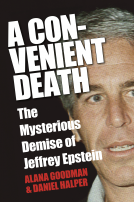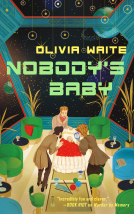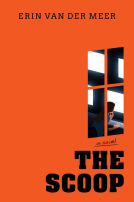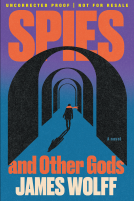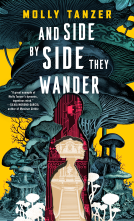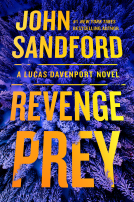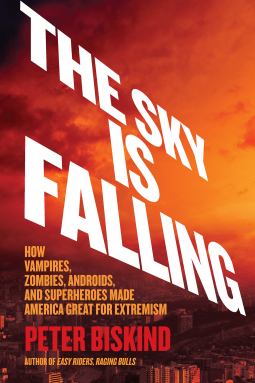
The Sky Is Falling
How Vampires, Zombies, Androids, and Superheroes Made America Great for Extremism
by Peter Biskind
This title was previously available on NetGalley and is now archived.
Send NetGalley books directly to your Kindle or Kindle app
1
To read on a Kindle or Kindle app, please add kindle@netgalley.com as an approved email address to receive files in your Amazon account. Click here for step-by-step instructions.
2
Also find your Kindle email address within your Amazon account, and enter it here.
Pub Date Sep 11 2018 | Archive Date Sep 11 2018
Talking about this book? Use #TheSkyIsFalling #NetGalley. More hashtag tips!
Description
“A thoughtful, entertaining, and occasionally profound critical study of the texts that entertain, move and, sometimes, shape us.”
—The Spectator (London)
“A bold, witty, and brilliantly argued analysis of the role pop culture has played in the rise of American extremism.”
—Ruth Reichl
“You'll never look at your favorite movies and TV shows the same way again. And you shouldn't.”
—Steven Soderbergh
A bestselling cultural journalist shows how pop culture prepared Americans to embrace extreme politics
Almost everything has been invoked to account for Trump's victory and the rise of the alt-right, from job loss to racism to demography—everything, that is, except popular culture. In The Sky Is Falling bestselling cultural journalist Peter Biskind dives headlong into two decades of popular culture—from superhero franchises such as the Dark Knight, X-Men, and the Avengers and series like The Walking Dead and Game of Thrones to thrillers like Homeland and 24—and emerges to argue that these shows are saturated with the values that are currently animating our extreme politics.
Where once centrist institutions and their agents—cops and docs, soldiers and scientists, as well as educators, politicians, and "experts" of every stripe—were glorified by mainstream Hollywood, the heroes of today's movies and TV, whether far right or far left, have overthrown this quaint ideological consensus. Many of our shows dramatize extreme circumstances—an apocalypse of one sort or another—that require extreme behavior to deal with, behavior such as revenge, torture, lying, and even the vigilante violence traditionally discouraged in mainstream entertainment.
In this bold, provocative, and witty investigation, Biskind shows how extreme culture now calls the shots. It has become, in effect, the new mainstream.
Available Editions
| EDITION | Other Format |
| ISBN | 9781620974292 |
| PRICE | $26.99 (USD) |
| PAGES | 256 |
Average rating from 9 members
Featured Reviews
 Helen C, Reviewer
Helen C, Reviewer
The Sky Is Falling: How Vampires, Zombies, Androids, and Superheroes Made America Great for Extremism
In The Sky Is Falling Peter Biskind analyzes current styles in mass-market pop culture films and TV shows and discusses how they're connected to political attitudes, extremist and mainstream.
Sometimes these movies and television series present a particular philosophy and sometimes they act as a battleground where contending ideologies fight it out.
Biskind identifies centrist, left-wing, and right-wing attitudes, and some in between.
Among many other films and television series, Biskind looks at Star Wars and what Biskind calls the anti-Star Wars, Avatar.
George Lucas has said how important the Vietnam War was to him and filmmakers of his generation. The war for the planet Pandora in the movie Avatar plays out like a rerun (to put it in TV terms) of the Vietnam conflict.
The television series Falling Skies, about an alien invasion of Earth, is a right-wing explanation about how America has let itself deteriorate. It even includes an American version of the stab-in-the-back theory right-wing Germans used to explain why they lost the first world war.
The explanation “They didn't let us win” is often quoted by Rambo-type characters to explain how America could have lost in Vietnam.
An example of one type of story, presented by the evangelical right, is the film God's Not Dead. Stories of the “rapture,” such as the television series Left Behind, may be popular with a religious audience, but they're also interesting to fans of fantasy or science fiction in general. (Unfortunately, many rapture stories are just bad on an artistic level.)
The TV show True Blood, about vampires on the bayou, and the X-Men films both present allegories against homophobia.
The Walking Dead, a television series about zombies, must be one of the most violent shows on the air. One look at the baseball bat wrapped in barbed wire was enough for me. I don't care what the zombies symbolize.
Biskind looks at revenge heroes (if there can be such a thing): The Matrix, Jack Bauer, and Christopher Nolan's Batman.
Like most of Peter Biskind's books, The Sky is Falling is carefully thought out history and an interesting read.
(Thanks to NetGalley and The New Press for a digital review copy.)
 nathan h, Reviewer
nathan h, Reviewer
Biskind is out to explain here just how various TV shows and movies have helped to inform extremism with detailed explanations (some zoomed in to the nth degree), and others in a passing swipe.
It's likely no surprise that movies and shows of their respective eras can serve as a divining rod for the cultural happenings of that period, but here we're shown that this truly occurs more often than you may realize---not just in the more overt shows like 24 or Homeland, but in almost the entirety of James Cameron's oeuvre, in an array of Marvel superhero films, and yeah, even in the Twilight series.
This book is definitely at its strongest when it's comparing and contrasting pro-Trump ideals with science fiction and horror classics, linking some shows/movies; that isn't to say that they're made specifically for the hard right, but that there is ample reason to believe that the message (or, at least, motivations of characters within a particular film or show) shares a common ground with the current GOP/Tea Party/hard right, its mirrored opposite on the liberal side, or somewhere in between. Equally interesting is the posing of evidence regarding movies and shows that, on the surface, might appear as a tool for either the far left or right, but end up being something else altogether.
If the book has a weakness, it's that sometimes the information is so expansive and the book's pace is so frenetic that it's easy to lose track of just what exactly is being covered. I was in for some considerable backtracking, as much of the book's punch relies on the recollection and familiarity of the numerous affiliations across the political/value spectrum. I must also mention that I found several of his assertions of characters within examples to be a stretch (two that come to mind are from The Revenant and 2014's Robocop), but it didn't undermine the overall point he was trying to make (I should note that, while maybe not as exciting or thematically rich as its two successors, there is no way that Batman Begins is the weakest of Nolan's Dark Knight trilogy, as Biskind suggests).
It's always interesting to analyze the thematic aspects of film, and Biskind's book automatically causes one to look into themselves and take notice as to how their values stack up against the movies and shows they may hold dear (and what those shows may really be trying to say). There are also some low-key benefits to reading this: I now feel like I have no need to tackle the Left Behind or Twilight book series. Biskind's done the heavy lifting.
If you're even remotely intrigued by the title of this book, do yourself a favor and read it. It'll enrich many films and shows you're familiar with, and help you keep your mind open to these themes from here on out.
Many thanks to NetGalley and The New Press for the advance read.


